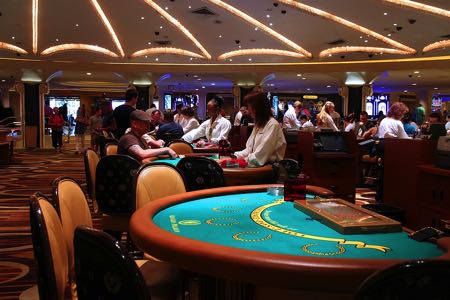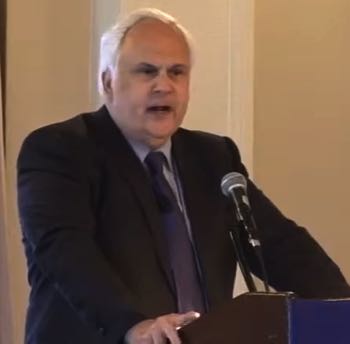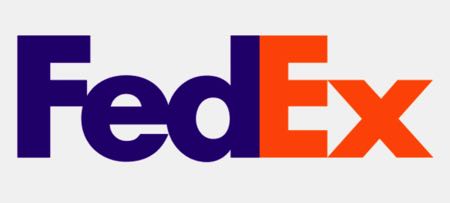
Frederick Wallace Smith was born on the 11th of August, 1944 in the city of Marks in the US state of Mississippi. He was the son of James Smith, who had founded a restaurant chain called Toddle House, in addition to the Smith Motor Company that later became the Dixie Greyhound Lines. James Smith died when Fred was just four, leaving him to be raised by his mum and uncles, yet he kept some of his father’s business smarts. He studied economics at Yale University alongside George W. Bush and John Kerry.
During his time at Yale, Smith wrote a paper for one of his economics classes, which outlined an overnight delivery service. He received a ‘C’ for his paper, but the idea for what would become FedEx was born. During the company’s formative years, the story goes that there was just $5,000 left in the accounts but a fuel bill of $24,000, so he took the $5,000 to Las Vegas and gambled it all on Las Vegas, winning $27,000 and keeping the company alive for one more week. The question is, is that really what happened?
Who Was Fred Smith?

Before explaining what it was that Smith did with the last few dollars of FedEx, it is worth getting a sense of who he was as a person. As a youngster, Frederick Smith had a bone disease that left him crippled, but he regained his strength by the time that he was ten-years-old. After studying at Memphis University School, he gained a place at Yale University to study economics. A peer of the future President George W. Bush and the Secretary of State John Kerry, he not only became the President of the Delta Kappa Epsilon but also the secret society of the Skill & Bones club.
After he graduated, Smith, who was a keen aviator, was commission in the US Marine Corps and served two tours of Vietnam before being honourably discharged in 1969. He was awarded two Purple Hearts, as well as a Bronze Star and a Silver Star, which shows you the sort of person that he was. In 1970, he purchased a controlling interest in a company called Ark Aviation Sales, which was primarily concerned with the maintenance of planes. Within a year, he’d turned it towards trading used jets, ensuring its success.
The Early Days of FedEx
Having written a paper at Yale about an overnight delivery service, Smith was convinced that the idea had the ability to be successful. On the 18th of June, 1971, he took the $4 million that he had inherited from his father and started a company called Federal Express. In today’s money, that would be worth about $25 million, but he also managed to raise an additional $91 million, which is about $550 million today, in venture capital, turning to many of the people that he had met during his time at Yale in order to do so.
In 1973, Federal Express began offering its services to 25 different cities in the United States of America, beginning with a small fleet of Falcon 20 jets and moving small packages and documents around the country. He focussed on trying to deliver an integrated service between the ground and the air, using the initial idea of it being a shipment equivalent of a bank clearing house. With banks, the central bank was located in the middle of the other banks and all of the representatives would be sent there in order to exchange materials.
Smith in Vegas with FedEx’s Money

During the formative years of FedEx, it is believed that Smith had to take numerous different chances in order to keep his company afloat. One of the best-known stories of this involved him having to head to Las Vegas with the company’s last $5,000 in order to try to win enough money to pay its fuel bill. The sentence ‘desperate times call for desperate measures’ seems to fit what Smith did to a tee, given his desperation after his application for a business loan was turned down and it looked like it was curtains for FedEx.
One of the company’s Founding Executives, Robert Frock, wrote about what happened in his book Changing How the World Does Business: Fedex’s Incredible Journey to Success – The Inside Story. He said that he asked Smith where the money came from and he told him that the meeting with General Dynamics ‘was a bust’ but, knowing that they needed the money for Monday, he ‘took the money to Las Vegas and won $27,000’. When Frock asked him what he was thinking, Smith apparently replied, “What difference does it make? Without the funds for the fuel companies, we couldn’t have flown anyway.”
From the Horse’s Mouth
The question is, does that story match up with what Smith himself said happened? In an interview with Charlie Rose, the businessman explained what it was that he did. Asked by Rose about what happened when he ‘went to Vegas with $25,000’, Smith corrected the interviewer. He said, “Well no, I didn’t go to Vegas with $25,000, I went to Vegas with a few hundred dollars and the man I was flying gave me a credit line of a thousand dollars and I won $25,000…” He also goes on to discuss the myth of what happened next. Smith said,
The myth is that that then made the payroll for the company. That’s not true at all. Although I won the money, we owed so much more money than that that it probably would have been a drop in the bucket. But it’s symbolic and it probably would have been important. It’s true and it’s a great story that everyone likes to tell.
So, Smith didn’t manage to turn $5,000 into £27,000 exactly. In some ways, it is even more impressive that he managed to turn ‘a few hundred’ dollars and a ‘credit line of one thousand dollars’ into enough money to keep the company going.
What Happened Next

Though Smith literally gambled the future of the company on his skill at playing blackjack, it survived. As Frock put it, “Fred’s luck held again. It was not much, but it came at a critical time and kept us in business for another week.” In the weeks and months that followed, FedEx was able to build up enough money to keep going and growing from strength to strength. By 1983, FedEx had revenues of more than a billion dollars, suggesting that his decision to put everything on the table had worked out for him.
The company grew rapidly, expanding to both Europe and Asia in 1984. Within four years it had moved to acquire one of its biggest competitors, Flying Tiger Line, which made it the largest cargo airline anywhere in the world. A decade later and the decision was taken to officially change the company’s name from Federal Express to FedEx, adopting the nickname that most people had used for years. The company continued to grow, to the point that in April of 2015 it could buy TNT Express, a rival firm, for $4.8 billion.
Bill Gross Also Played Blackjack
Though it is fair to say that gambling the future of a business on blackjack is an incredibly risky strategy that is statistically more likely to fail than it is to succeed, Smith isn’t the only business person who credits blackjack with helping him develop his business acumen. In 1966, Bill Gross headed to Las Vegas with just $2,000 dollars in his pocket after he graduated Duke University with a degree in psychology. He spent four months counting cards as much as 16 hours a day, turning his $2,000 into $10,000, whilst also being kicked out of some of Sin City’s biggest casinos.
Speaking about the matter, Gross said, “My early blackjack career taught me several things. The first is that if you apply yourself with a lot of hard work and mathematical prowess you can beat the system.” He also said that Las Vegas gave him a ‘sense of risk’, as well as the ability to avoid placing too many ‘high-stakes bets’. He said, “Although the odds were many times in my favour, if you took too much leverage and had too much debt then the house of cards will come tumbling down.” That idea of not taking too much risk is one that most gamblers could do with learning.
Gross joined the military after his stint in Las Vegas, later going to the University of California in Los Angeles in order to attend business school. After that, he worked as an investment analyst before creating his own company, Pacific Investment Management Company, with his his friends. It started life with $12 million of assets under its management and by 2014 had more than $1.97 trillion that it was responsible for. According to that year’s Forbes Magazine’s billionaire list, he personally was worth more than $2.3 billion.
Gambling Isn’t the Right Way to Do Business
The stories of Smith and Gross might paint gambling as being a positive way of securing a person’s future, but it always worth bearing in mind that if Smith had lost everything in Las Vegas then FedEx almost certainly wouldn’t exist today. Not only that, but he had someone who could give him a credit line of a thousand dollars, to say nothing of the fact that he came from money and would personally have been fine if the plan to win the fuel money in Sin City hadn’t worked out as he had hoped it would when he sat at the blackjack table.
Jack Symons Launches Gamban
 Equally, Gross might have been able to turn his money into more money, but it is clear from the fact that he went on to be worth billions that he always had business acumen. They are the exceptions that prove the rule, which is that gambling is only ever likely to help the House make money. That is perhaps proven by the experience of Jack Symons, who won a jackpot when playing on slot games before then spending huge amounts of money trying to chase that high in the future. Eventually, he turned his knowledge to create Gamban.
Equally, Gross might have been able to turn his money into more money, but it is clear from the fact that he went on to be worth billions that he always had business acumen. They are the exceptions that prove the rule, which is that gambling is only ever likely to help the House make money. That is perhaps proven by the experience of Jack Symons, who won a jackpot when playing on slot games before then spending huge amounts of money trying to chase that high in the future. Eventually, he turned his knowledge to create Gamban.
Launched in 2016, the software blocks access to gambling sites across all of a customer’s devices, working with companies such as Lloyds Banking Group in order to help people regain control over their gambling habits. He said, “Once you get a taste for the swings, the high highs, and the low lows, it’s hard to go back. What I was doing was very quickly becoming unaffordable and before long I’d lost all the money I had saved.” Having tried to stop many times, he realised he needed a barrier to be put in his way.
Symons said, “One evening my father and I were talking about gambling and I came up with the idea of a light-touch, cross-platform software that blocked access to nothing but gambling. As I was still gambling, I needed this, so I got to work immediately.” Though Smith and Gross were successful in their gambling, it is likely that what Symons created helped many more people ensure that their businesses grew without the need to gamble the seed money that they had available to them, which is more likely to work in the long-term.